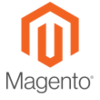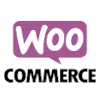
Starting an online store is an exciting venture, but the success of your business often hinges on the platform you choose. With options like Prestashop, WooCommerce, Magento, and Shopify, the decision can feel overwhelming. Each platform comes with its own set of features, benefits, and limitations, making it essential to understand how they align with your business goals. In this guide, we’ll break down these popular platforms, helping you find the one that meets your needs and sets your e-commerce business up for success.
Prestashop: A Cost-Effective Option for Customization
Prestashop is an open-source e-commerce platform designed for small to medium-sized businesses. It’s free to download and use, allowing businesses to minimize upfront costs. With a modular design, Prestashop offers extensive flexibility to add features as your business grows, making it ideal for companies looking for a tailored e-commerce solution without breaking the bank.
Pros
- Free to use, keeping startup costs low.
- Highly customizable through add-ons and third-party modules.
- Multilingual and multi-currency support for global businesses.
Cons
- Requires technical expertise for setup and ongoing maintenance.
- Limited built-in features compared to hosted solutions.
Best For
Prestashop is best suited for small to medium-sized businesses with technical resources and a need for affordable, customizable solutions.
WooCommerce: The Power of WordPress for E-Commerce
WooCommerce is a plugin for WordPress that transforms your site into a fully functional online store. As part of the WordPress ecosystem, it provides unmatched flexibility and a vast library of plugins for customization. WooCommerce is free to use, making it an affordable choice for businesses already using WordPress or those looking for complete control over their e-commerce setup.
Pros
- Seamless integration with WordPress websites.
- Highly customizable with thousands of plugins and themes.
- Free to get started, with paid add-ons available for extra features.
Cons
- Requires regular updates and monitoring for security.
- Scaling can become costly with additional plugins and hosting.
Best For
WooCommerce is ideal for small to medium-sized businesses that prioritize flexibility, especially those already using WordPress or wanting full control over their website.
Magento: A Scalable Solution for Growing Enterprises
Magento, now part of Adobe Commerce, is a feature-rich platform built for scalability and performance. It supports complex catalogs and high-traffic websites, making it an excellent choice for businesses with advanced e-commerce needs. Magento comes in two versions: Open Source (free) and Adobe Commerce (premium), catering to businesses of all sizes.
Pros
- Advanced features for managing large inventories and multi-channel sales.
- High scalability to support growing businesses.
- Extensive customization options for unique business needs.
Cons
- Requires significant technical expertise for setup and maintenance.
- Premium versions and hosting can be expensive.
Best For
Magento is best suited for large enterprises or businesses with complex e-commerce requirements, such as managing high traffic or international operations.
Shopify: The All-in-One Solution for Simplicity
Shopify is a fully hosted platform that simplifies the e-commerce experience. It handles everything from hosting to security, allowing business owners to focus on selling. Shopify’s user-friendly interface, extensive app marketplace, and quick setup make it one of the most popular choices for new and established online stores alike.
Pros
- Simple to set up and use, perfect for those just starting out.
- Hosting, security, and maintenance are included in the subscription.
- Wide range of themes and apps for customization.
Cons
- Limited customization compared to open-source platforms.
- Transaction fees unless using Shopify Payments.
Best For
Shopify is ideal for small to medium-sized businesses that value simplicity and want a quick, hassle-free way to launch and manage an online store.
Final Thoughts
Ultimately, choosing the right e-commerce platform is a crucial step in building a successful online business. Whether you need a budget-friendly and customizable option like Prestashop, the flexibility of WooCommerce, the scalability of Magento, or the simplicity of Shopify, each platform offers unique advantages tailored to different needs. Take the time to assess your business goals, technical capabilities, and budget to ensure the platform you choose aligns with your vision. With the right foundation, your e-commerce journey can lead to long-term success.







